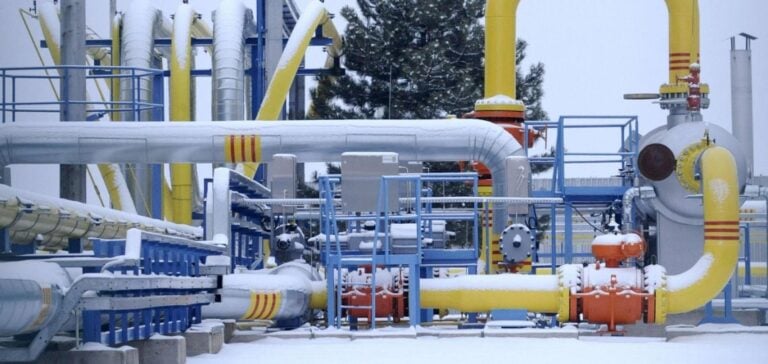Ukraine’s announcement to cease Russian gas transit through its territory starting January 1, 2025, is reshaping Europe’s energy landscape. This decision ends a 2019 agreement between Ukrainian companies Naftogaz and GTSOU and the Russian giant Gazprom. It will deeply impact Eastern European countries, where dependency on Russian gas remains significant despite a general decrease in European imports.
Major Impact on Slovakia
Slovakia is at the forefront of this crisis, relying heavily on Russian gas for its supply. Currently, Gazprom covers the transit fees through Ukraine, making this source more competitive than alternatives. With the planned shutdown, Slovakia will have to seek other suppliers, incurring an estimated additional cost of €150 million, according to the national company SPP.
This complex situation has prompted Prime Minister Robert Fico to strengthen negotiations with Moscow, despite international criticism. Ukrainian President Volodymyr Zelensky accuses Bratislava of indirectly financing Russia’s war efforts, an accusation dismissed by the Slovak government in favor of its priority on economic policy.
Costly Diversification
Austria, Slovakia’s neighbor, ended its long-term contract with Gazprom in December 2024, but this strategy remains difficult for Bratislava to adopt. “Diversification comes at a price,” explained Ondrej Sebesta, spokesperson for SPP. Alternatives include imports from more distant suppliers, such as Azerbaijan or Qatar, significantly increasing logistical costs.
In this context, experts warn of potential shortages, particularly if the winter of 2025 is exceptionally harsh. For the European Union, this crisis highlights the need to strengthen its common policies on energy security.
Moldova Under Pressure
Moldova is also heavily affected by the closure of Ukrainian transit routes. Although it has made significant efforts to diversify its energy sources, the country still depends on the Cuciurgan thermal power plant, located in the separatist Transnistria region and supplied with Russian gas. The Moldovan government has declared an energy emergency, anticipating power outages if supplies are not guaranteed.
Moldovan President Maia Sandu accuses Moscow of using energy as a political weapon. This situation arises at a critical time, just months before legislative elections, in an already tense relationship between Chisinau and the Kremlin.
Hungary’s Wait-and-See Position
Hungary, although less dependent on Ukrainian transit due to the TurkStream pipeline, remains cautious about these developments. Prime Minister Viktor Orban recently mentioned ongoing negotiations with Moscow and Kyiv to maintain modest volumes through Ukraine. However, this strategy fuels criticism within the European Union, which urges Budapest to reduce its ties with Gazprom.
According to expert Andras Deak, Hungary risks becoming “Gazprom’s last client” in the EU, exposing the country to increased political pressure from Brussels. By maintaining its partnership with Russia, Budapest opts for a controversial but economically viable path in the short term.





















